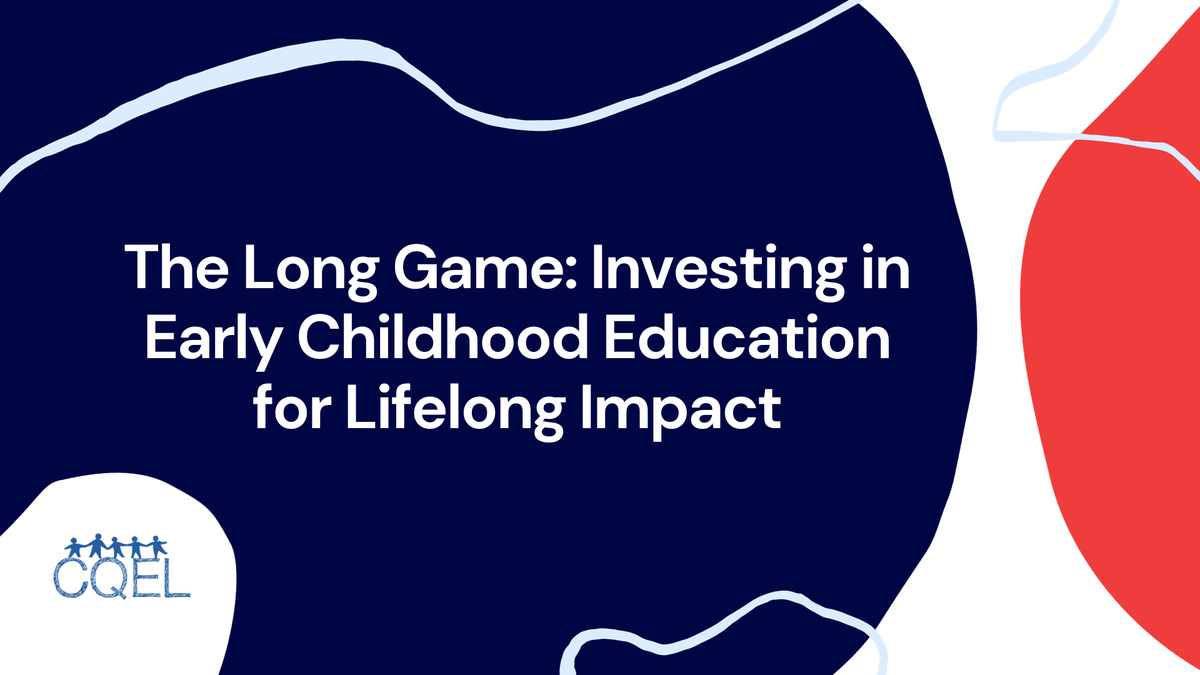The Long Game: Investing in Early Childhood Education for Lifelong Impact
Invest in childhood, reap a lifetime! Early education isn't just cute giggles - it builds brains, fosters well-being, breaks cycles of poverty, and creates a stronger society. Resources & action steps included! #earlychildhood #impact #brightfuture

Imagine a seed, nestled in fertile soil, promising a vibrant bloom. That seed, nurtured with care and sunlight, holds the potential for a majestic tree, offering shade, shelter, and beauty for generations. Early childhood education, with its gentle hands and attentive gaze, is the gardener of these seeds, playing a crucial role in shaping not just the present, but the entire landscape of a child's future.
While the benefits of early education are often measured in cute milestones and smiling faces, the impact extends far beyond those immediate joys. It's a long-term investment, a subtle yet powerful shaping of minds and hearts that ripples outward, influencing every aspect of a child's life.
Here's how early education plays the long game:
- Building the Brain's Architecture: The early years are critical for laying down the neural pathways that form the foundation for learning, memory, and emotional regulation. Quality early education experiences stimulate these pathways, fostering cognitive development and laying the groundwork for academic success later in life.
- Nurturing Social and Emotional Intelligence: Early childhood is a time of rapid social and emotional development. Through play, interaction, and guidance, children learn empathy, cooperation, self-regulation, and conflict resolution skills – crucial tools for navigating relationships and building fulfilling lives.
- Promoting Physical and Mental Wellbeing: Early childhood programs that emphasize healthy habits, physical activity, and emotional well-being set children on a path towards lifelong health and resilience. They learn to manage stress, develop healthy coping mechanisms, and build self-esteem, laying the foundation for a positive future.
- Breaking Cycles of Poverty and Disadvantage: For children from disadvantaged backgrounds, quality early education can be a lifeline. It provides access to resources, educational opportunities, and social support, helping them break the cycle of poverty and achieve their full potential.
- Creating a Stronger Society: Investing in early childhood education isn't just about individual children; it's about building a stronger society for everyone. Children who receive quality early education are more likely to become productive citizens, contributing positively to their communities and economies.
So, how can we nurture these seeds of potential?
- Investing in high-quality programs: Ensuring all children have access to qualified educators, stimulating environments, and enriching experiences is crucial.
- Supporting families: Early childhood education is a collaborative effort. Supporting families through resources, guidance, and access to quality care strengthens the foundation for children's development.
- Advocating for early childhood education: Raising awareness about the long-term benefits of early education can garner support for policies and investments that prioritize this critical stage.
Investing in early childhood education isn't just about giving children a head start; it's about building a brighter future for everyone. By nurturing these young minds and hearts, we plant the seeds for a society that thrives on resilience, empathy, and lifelong learning. Let's play the long game, together, and watch these seeds blossom into a forest of potential.
Additional Resources:
- The Center on the Developing Child at Harvard University: https://www.developingchild.harvard.edu/
- First Things First: https://www.firstthingsfirst.org/early-childhood-matters/investing-in-early-childhood/
- The Annie E. Casey Foundation: https://www.aecf.org/
Let's cultivate a world where every child has the opportunity to reach their full potential, and where the seeds of early childhood education bloom into a thriving future for all.
